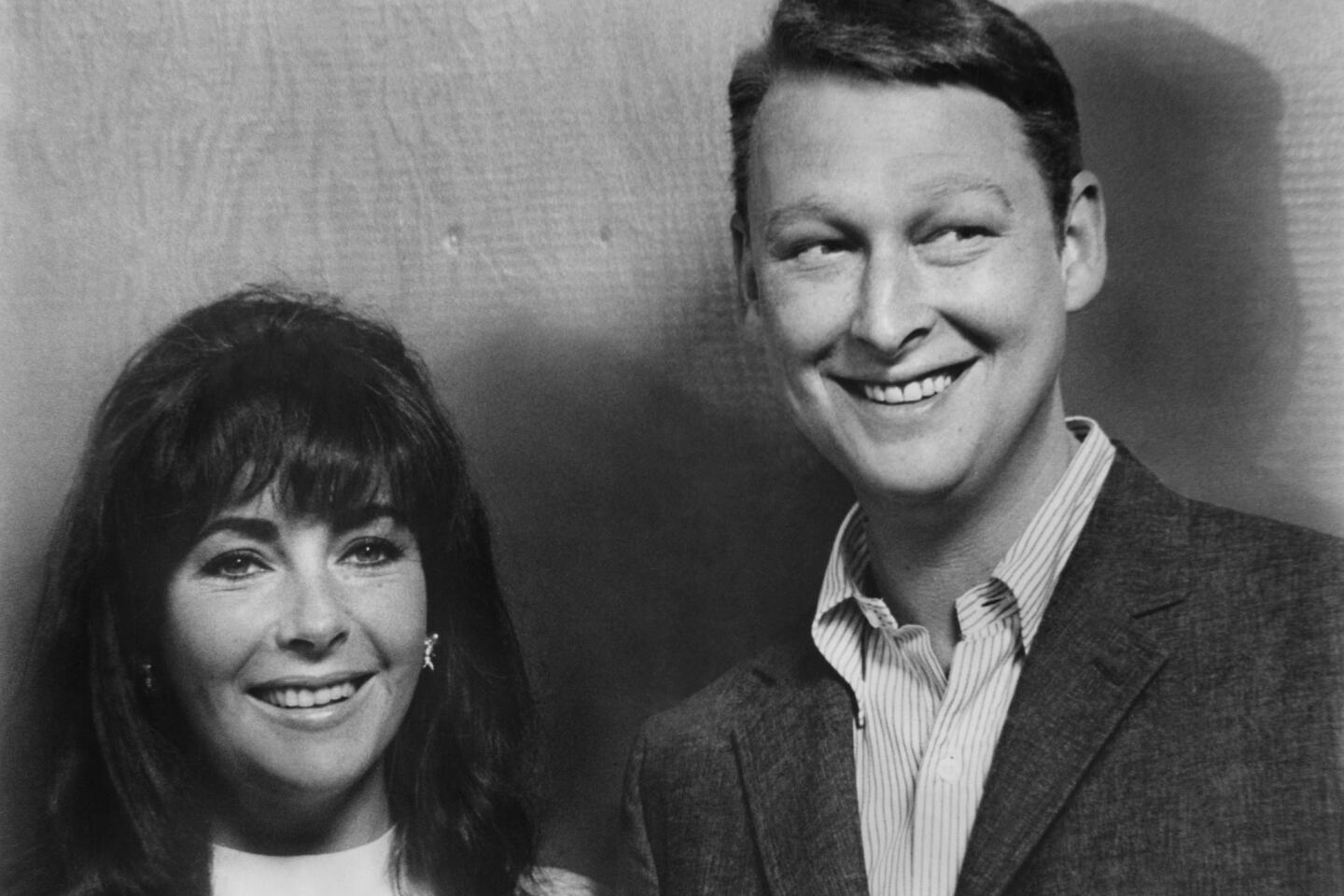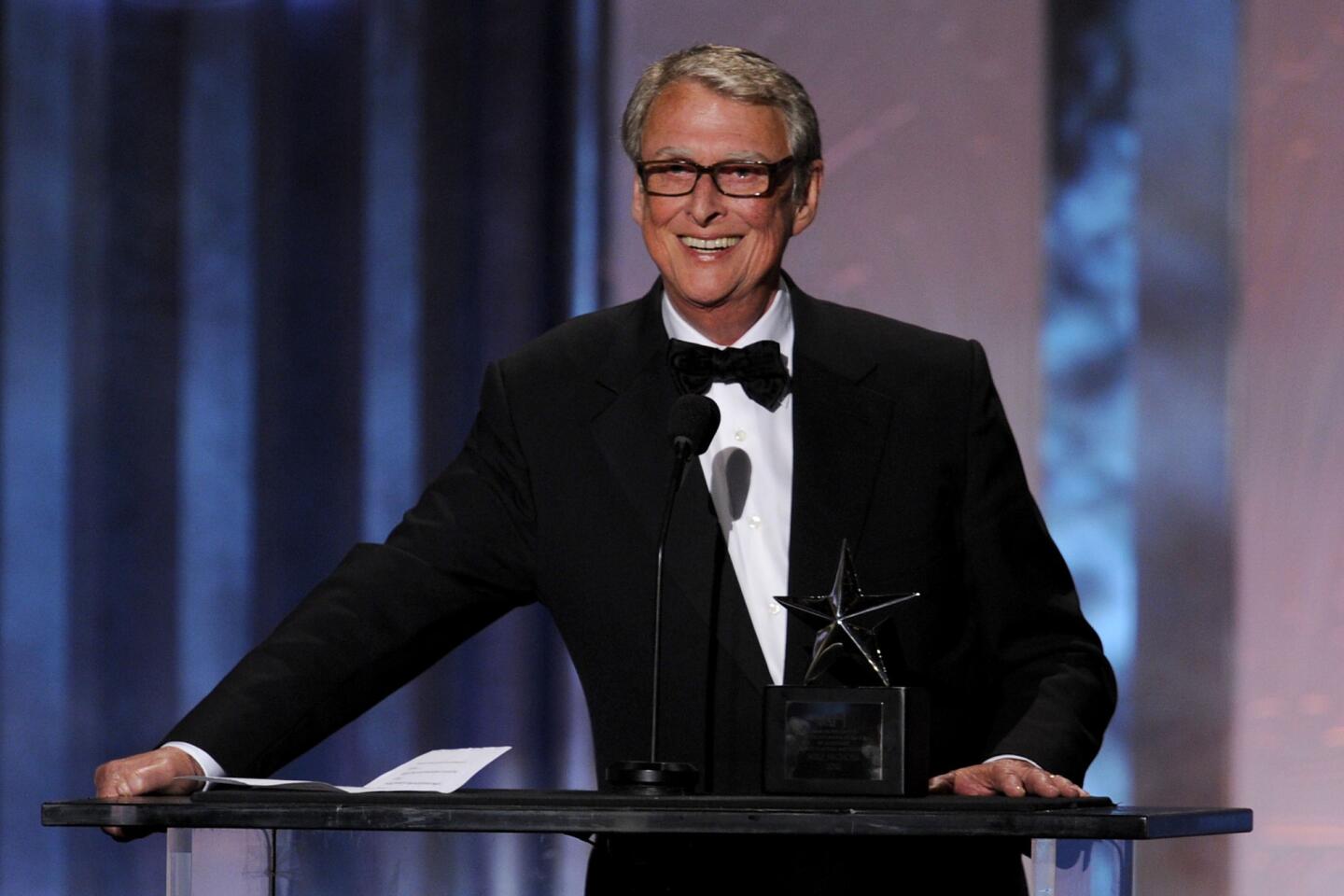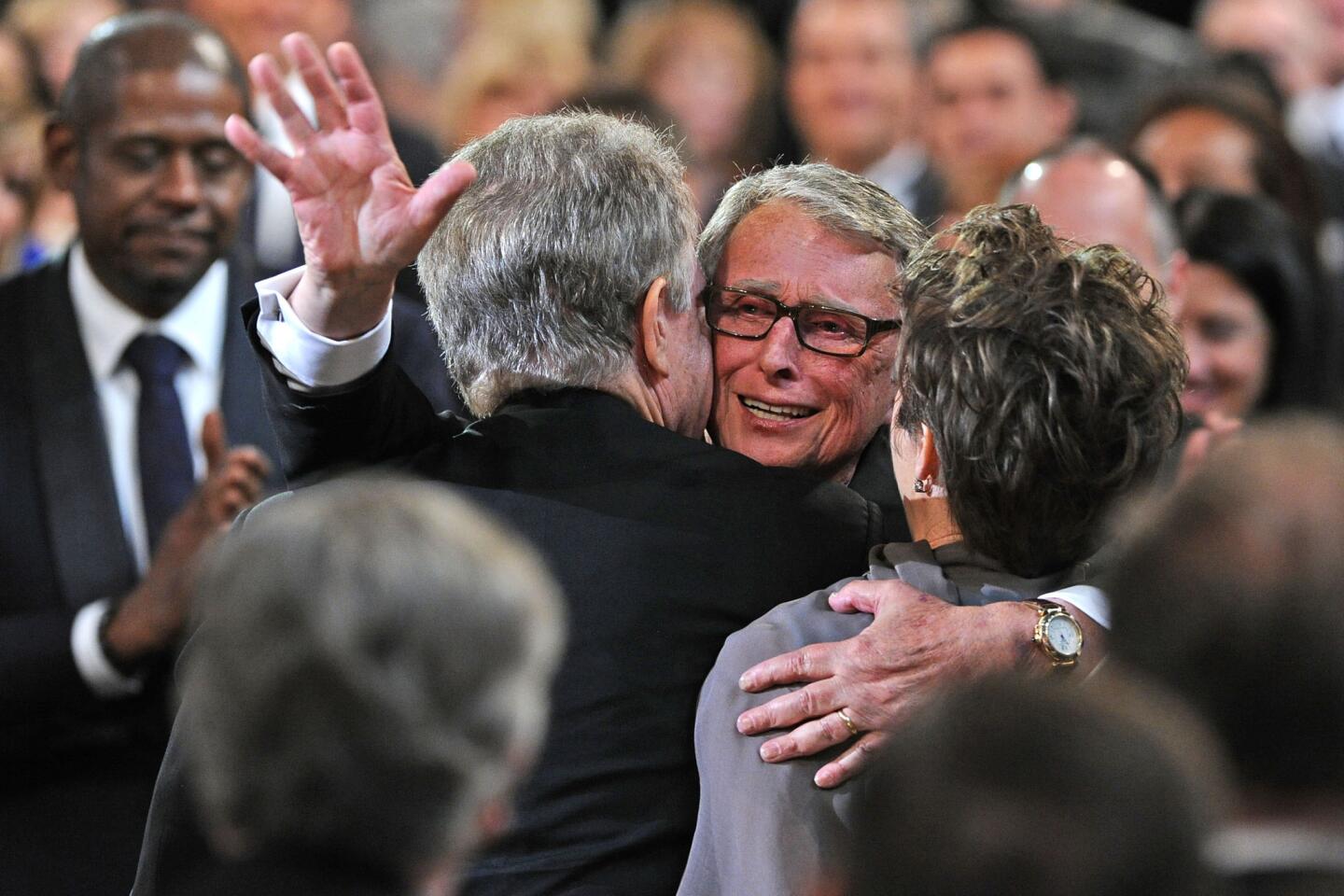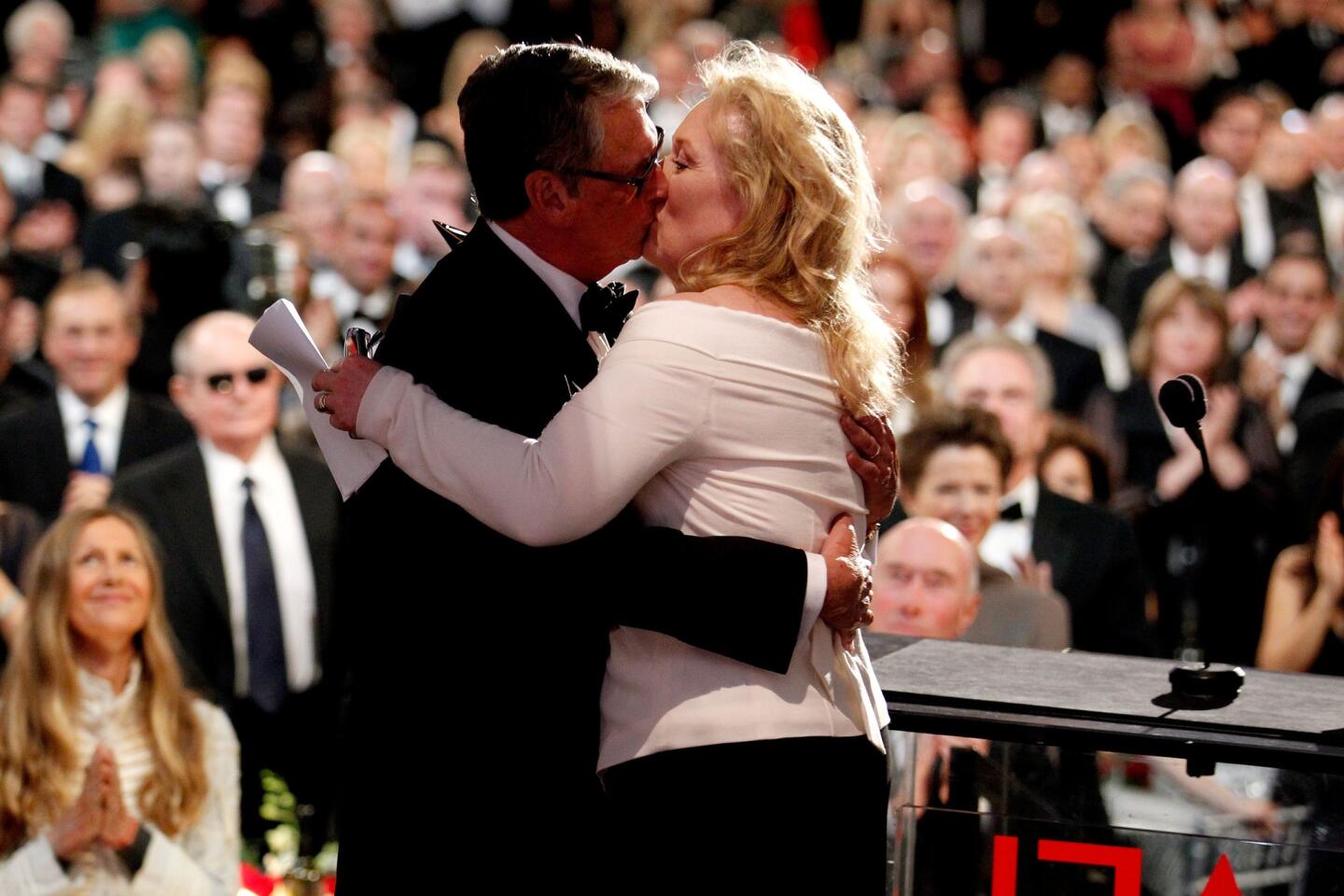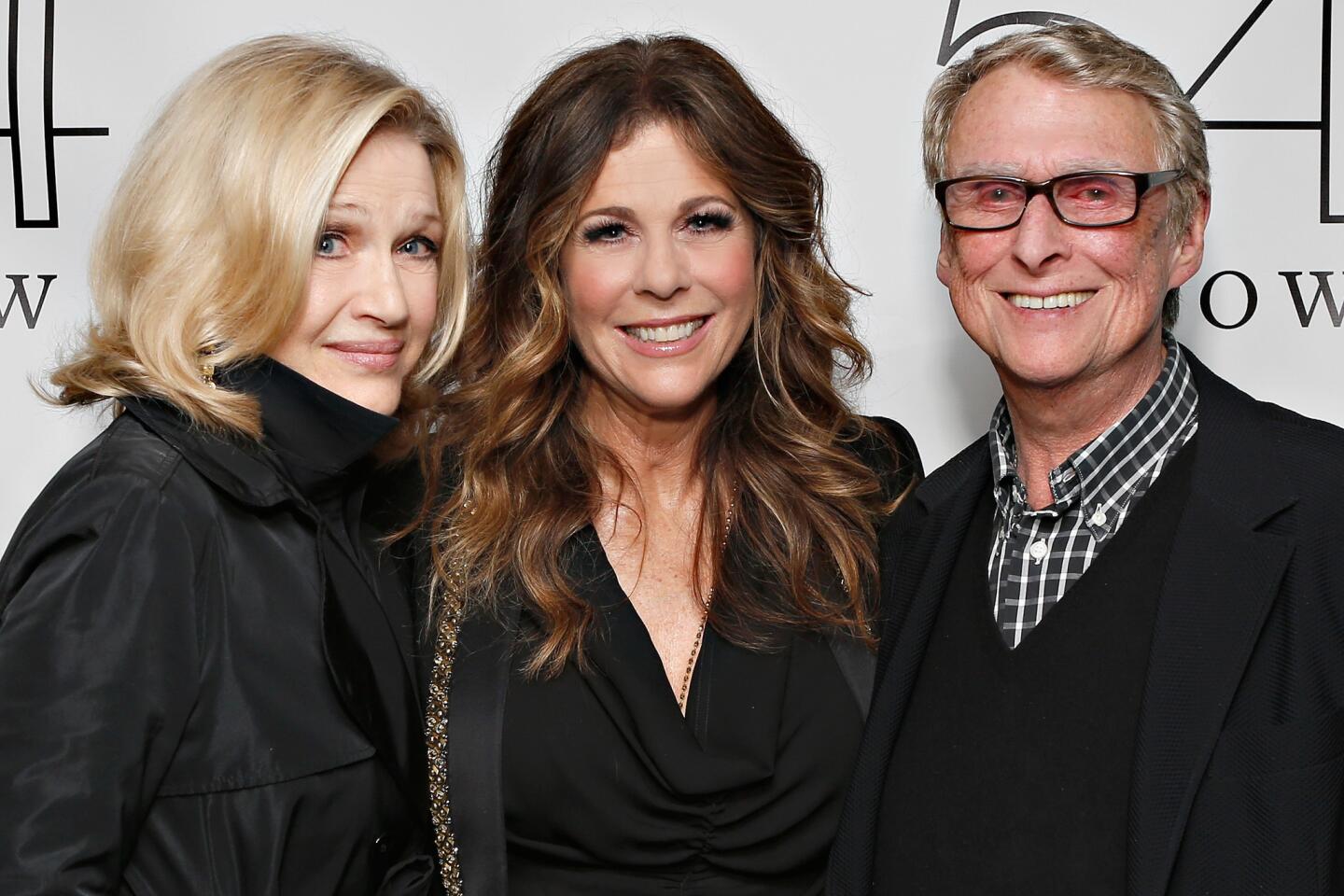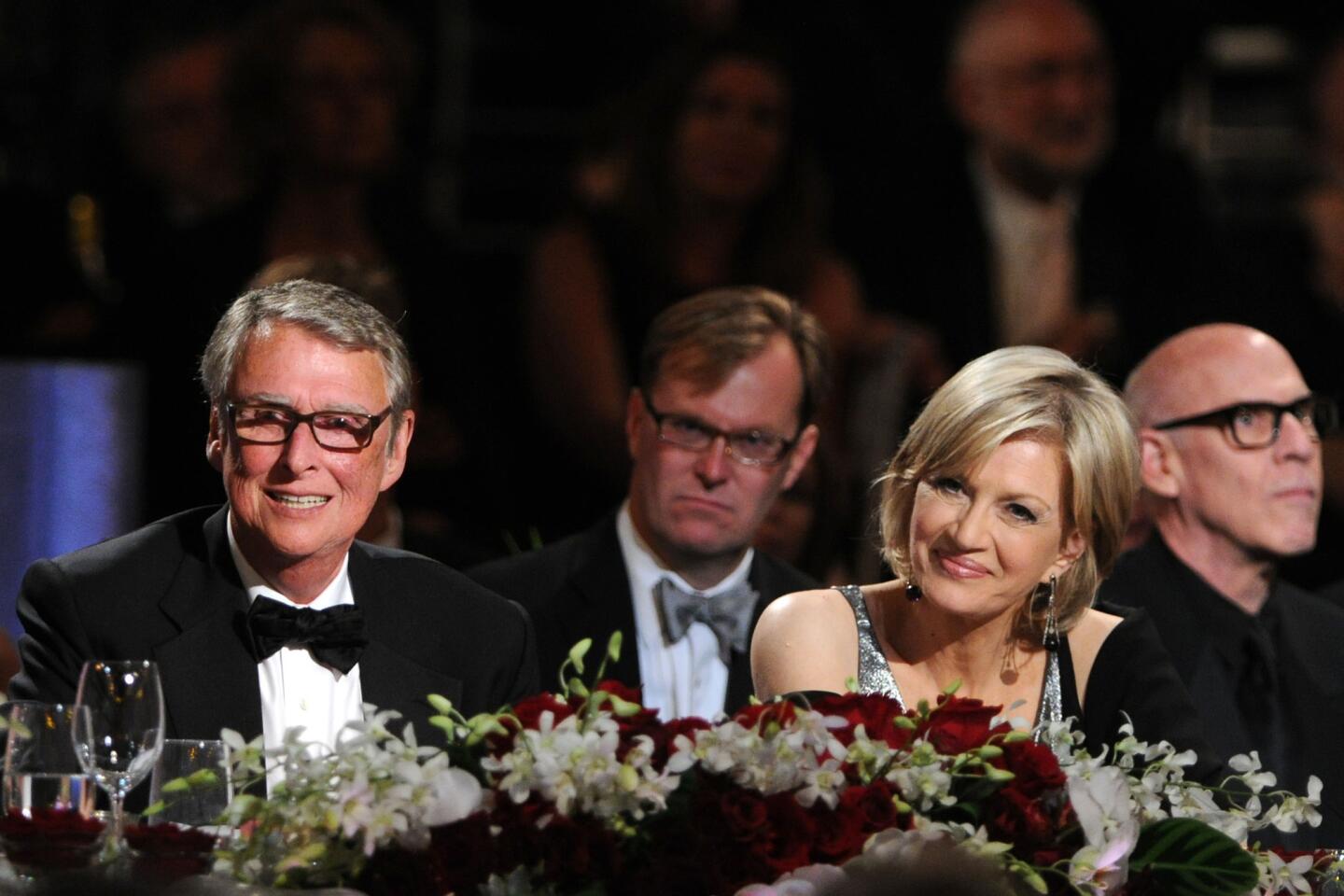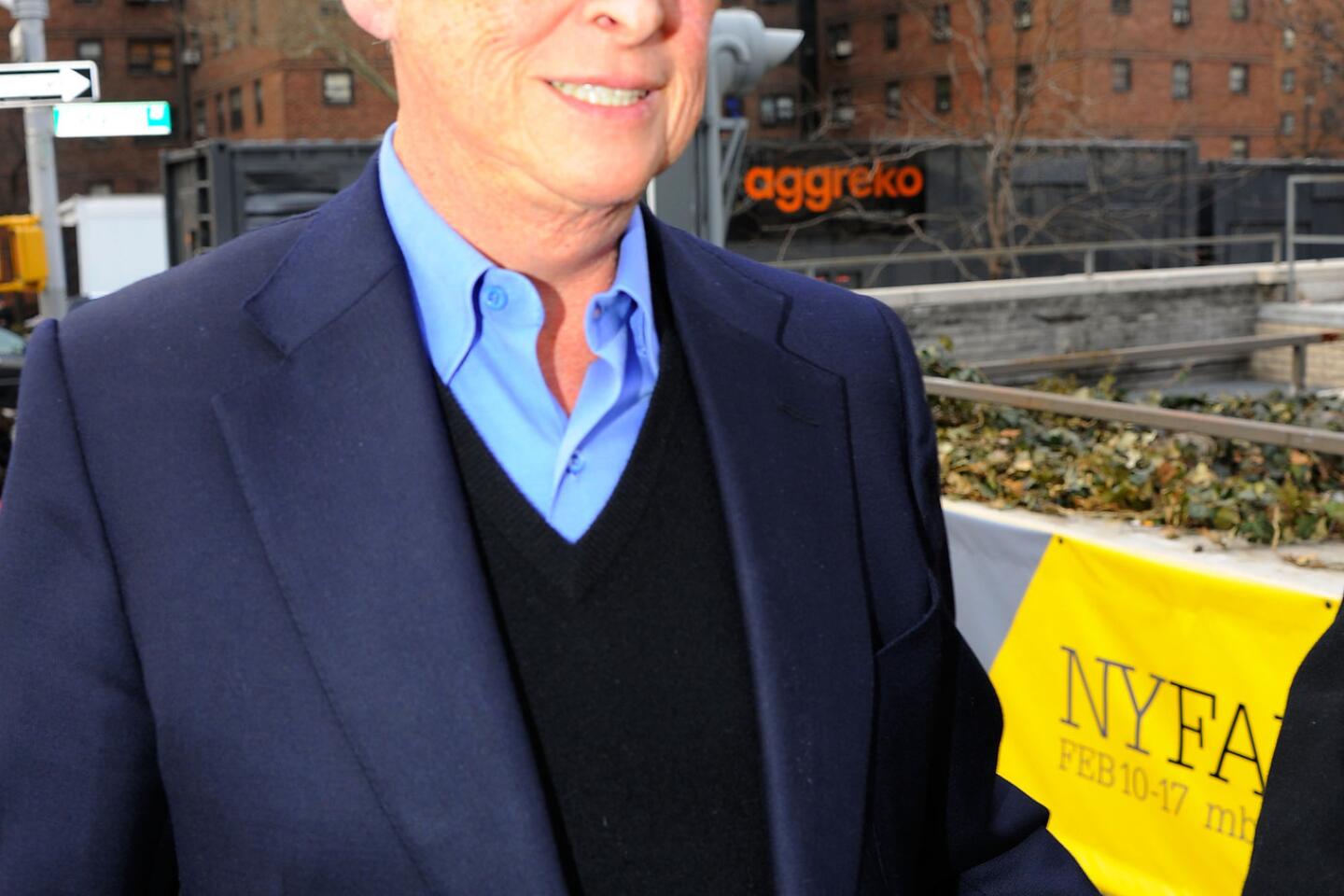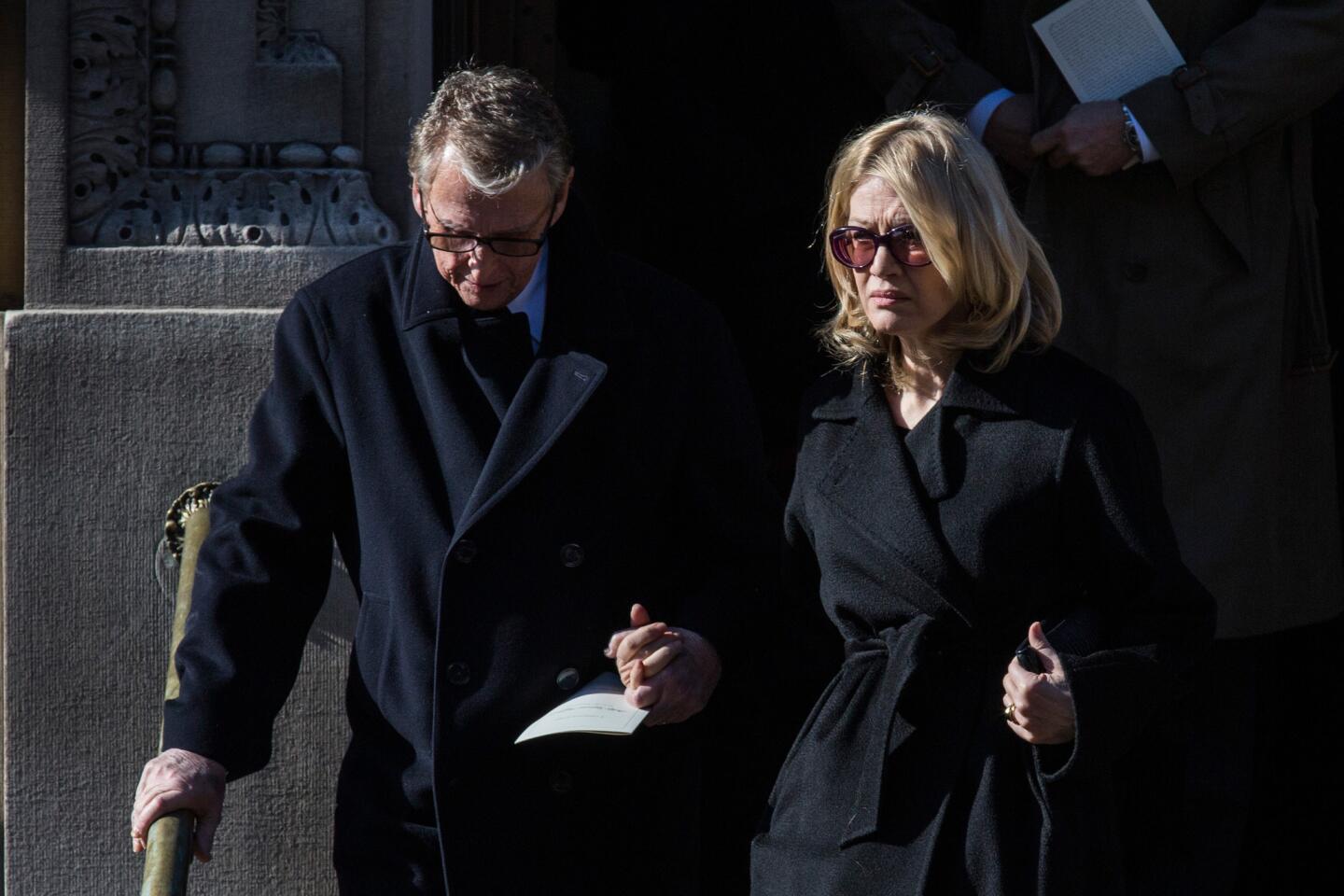Appreciation: Mike Nichols’ incisive, touching films got personal
- Share via
When I watch the films of Mike Nichols, I see my children, my parents, family, friends, foes, life in all of its complexity. I see me.
“The Graduate,” “Heartburn,” “Catch-22,” “Silkwood” ... those are some of my favorite Nichols films. But what stays with me is not any one movie. Nor his influential creative force. Or even his singular voice. It’s that quintessential Mike Nichols quality that radiates from the core of his work. He made it personal.
His films touched so many of us because in the characters he chose and the actors he picked to give them voice, you could sense he knew us, heard us, was amused by us, championed us, loved us, forgave us.
This is why I can’t imagine a world without Mike Nichols. Or movies not marked by the profoundly emotional, culturally incisive, deeply empathetic imprint of a director whose passing at 83 on Wednesday I could feel deep in my bones.
As interested as he was in people, Nichols was galvanized and guided by ideas, spending a great deal of creative capital and his Hollywood cache capturing the joys and angst, the very evolution of a generation. Better than almost anyone else in Hollywood, Nichols’ films reflected the way shifting attitudes and changing mores in post World War II America would reshape this country. He built a stage for change, showed us what new and different looked like.
That he did it with such skill and understanding for the ripple effects is much of the reason his movies were embraced so widely, even as they rocked audiences to the core.
Like “Elaaaaaine!!!” That defining scream against convention cutting through a church wedding in “The Graduate.” It was classic Nichols and won the director his only Oscar. What it represents was his uncanny way of knowing just where — and, more significantly, just how — to probe the current zeitgeist.
The ideas — subtle, relatable — were ingrained in Dustin Hoffman’s college graduate. It was the 1960s, campuses were alive with discord, parents and children were facing a monumental breech. One that Nichols helped us navigate. So that resisting a career in “plastics,” or a plastic career, fighting for love and so much more — a new way of going at life, a new era of openness, of risk taking, of questioning the status quo — could be discussed across a generational divide.
It was clear where his soft spots were. You could generally find Nichols on the side of the disenfranchised, “Working Girl”; the whistle-blowers, “Silkwood”; the pacifists, “Catch-22”; the activists, “Charlie Wilson’s War”; the boundary pushers, “Carnal Knowledge.” If you had a righteous fight — and a sense of humor — there was no one better to enlist. Virtually every issue that has roiled us since the 1950s found a clear-eyed sounding board and a compassionate storyteller in Nichols.
Consider marriage. He did many times. You can trace the timeline of the fractures and the rise in divorces starting with Nichols’ first film, in 1966 — the scathing, alcohol-soaked “Who’s Afraid of Virginia Woolf” with Elizabeth Taylor and Richard Burton tearing each other and their marriage apart. Two decades later, the filmmaker would translate Nora Ephron’s caustically hilarious treatise on broken relationships for the yuppie class in “Heartburn.” He was picking at that thread again in 2004’s “Closer,” with Clive Owen, Julia Roberts, Jude Law and Natalie Portman playing the entangled couples.
Like many of Nichols’ projects, “Closer” began life as a play — the theater is so often where controversial constructs first test the entertainment waters. Nichols was the frequent director of choice to become a bridge over those troubled waters. He knew how to read and reach the minds and hearts of mainstream America, gauge the tolerance level, nudge us beyond it, to reconsider, rethink.
It’s not surprising that when Tony Kushner’s impossibly aching AIDS saga, “Angels in America,” made its way from Broadway to that great mass-disseminator of television in 2003 as the acclaimed HBO miniseries, Nichols was the one in the director’s chair.
At times like that, Nichols seemed fearless, uncompromising. At others he charmed us into dealing with difficult topics. In “The Birdcage,” his 1996 remake of a French film, he used the considerable comic talents of Nathan Lane and Robin Williams to make the idea of gay marriage in America a lovely lark — but also concrete — long before the fight for that legal right would begin to take hold.
In 1990’s “Postcards From the Edge,” based on Carrie Fisher’s quasi-autobiography, he framed the idea of celebrity meltdowns for us years before social media would make it a full-time business. And he did it with empathy, the organic, from-the-heart kind.
By all accounts, Nichols’ compassion for humanity as it ached for answers, wrestled with issues and fought for expression characterized the man as much as his movies. But we knew that already. Given the authenticity he put on screen, it could not be otherwise.
Twitter: @BetsySharkey
More to Read
Only good movies
Get the Indie Focus newsletter, Mark Olsen's weekly guide to the world of cinema.
You may occasionally receive promotional content from the Los Angeles Times.

